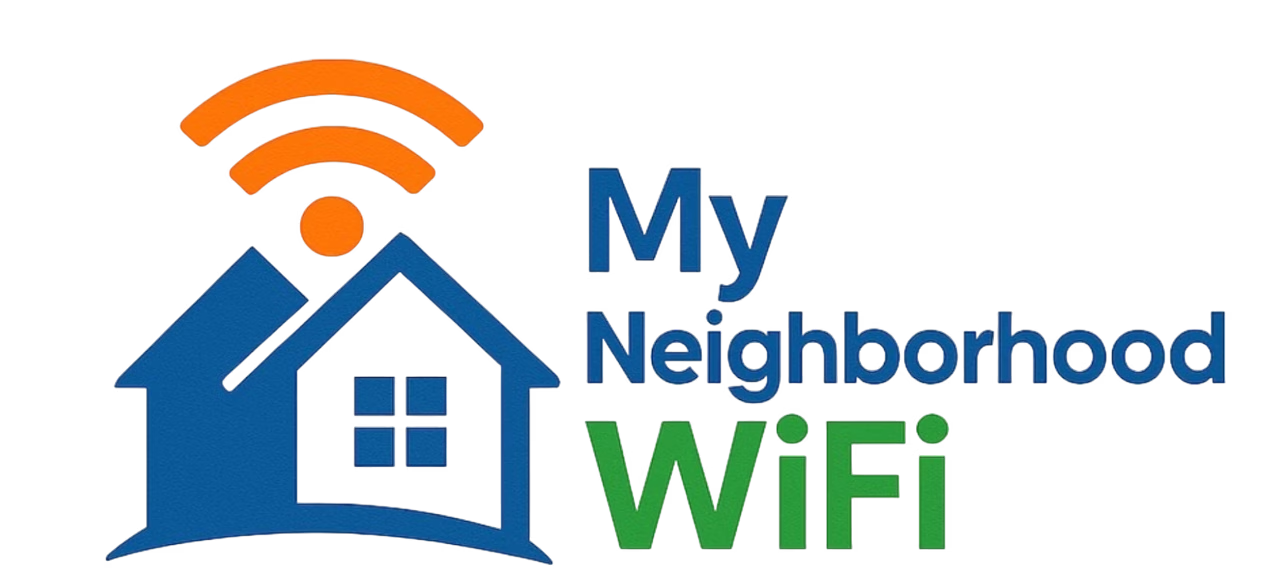
Stop Overpaying Online and Learn How to Avoid Hidden Internet Fees
When you sign up for home internet, you probably expect to pay what’s shown on your monthly bill—right? But as many subscribers discover, internet bills often include hidden fees that make the total cost far higher than promised. At MyNeighborhoodWiFi.com, we believe in helping people cut through the noise and understand what they’re really paying for. If you’ve ever wondered why your online service costs more than advertised, you’re not alone. Let’s dive into how to recognize, question, and eliminate those mysterious charges so you can stop overpaying online.
Understanding the Real Cost of Internet Service
Your internet bill may seem straightforward at first glance: a base monthly fee for your plan. But peek closer—something’s missing. Most providers add supplemental costs that can increase your bill by 15–40%. These hidden charges often hide beneath vague line items like “equipment,” “service,” or “regulatory” fees.
Common Hidden Internet Fees to Watch Out For
- Equipment rental fees: Many companies charge monthly for router or modem leases, often $10–$20 per month. You can usually purchase your own compatible equipment to avoid this ongoing expense.
- Installation or activation fees: New accounts often include one-time setup costs, even if you self-install. Always ask for these to be waived or credited.
- Data overage fees: Going over your plan’s data cap can lead to surprise charges. Check your provider’s data limit policy before heavy streaming or gaming periods.
- Early termination fees: Cancel before your contract ends, and you may owe hundreds in penalties.
- “Network maintenance” or “broadcast” fees: Some bills list vague charges that don’t have a clear purpose. These often vary by provider and may not be mandated by any official regulation.
Why Hidden Fees Exist in the First Place
These add-on costs often arise because internet companies separate portions of pricing to make base rates look cheaper. In marketing, a lower advertised price attracts more attention, even if the final cost is higher after “fees” are added. Transparency would help customers make better decisions—but for now, it’s largely up to you to scrutinize each line item yourself.
How to Spot Hidden Internet Fees on Your Bill
Before cutting costs, you must first identify them. Most bills have multiple pages or online sections separating “service” and “additional fees.” Take a few minutes to read through carefully each month.
Steps to Examine Your Bill
- Log into your account dashboard: Most ISPs break down charges online in more detail than on the paper copy.
- Look for recurring monthly add-ons: Terms like “lease,” “modem,” or “security fee” often hide under “Other Charges.”
- Check for fluctuating amounts: Some fees change month to month—these are worth questioning.
- Compare the first bill to your original quote: Often, the first month includes one-time fees that vanish later. Make sure they disappear as promised.
Pro Tip:
Many communities on Reddit or tech groups on Facebook share real-life screenshots of bills from various providers. Compare yours to see what’s normal—and what looks suspicious.
5 Ways to Avoid Internet Overcharges and Hidden Costs
You can’t control your provider’s policies, but you can take measures to minimize or eliminate unnecessary costs. These strategies work for most households.
1. Buy Your Own Equipment
Renting a modem or router every month adds up quickly. Consider buying an approved model outright—it usually pays for itself within a year. Before you buy, check for compatibility with your provider through user communities on Reddit or product reviews on YouTube.
2. Negotiate Your Bill
Believe it or not, internet pricing is negotiable. Call customer service and ask if you qualify for loyalty or promotion discounts. Be polite but firm. Mention if you’re considering switching to another local provider—many have departments specifically for customer retention and can offer you lower rates or free upgrades.
3. Avoid Contract Traps
Contractual plans often hide cancellation penalties. Look for “no-contract” options where possible. Even if slightly more expensive per month, they save money when you move or decide to change plans later.
4. Monitor Data Usage
Many households accidentally trigger overage fees through streaming or gaming. Use built-in router tools or mobile apps to track daily data use. If your plan includes a cap, set an alert when you hit 75% of the limit.
5. Review Your Bill Every Month
Check for new or changed charges. Some companies quietly adjust “equipment maintenance” or “regulatory recovery” amounts over time. Ask immediately about anything that changes without notice.
Extra Tips for Cutting Unnecessary Internet Expenses
- Bundle carefully: Bundles sometimes offer short-term discounts but lock you into contracts. Confirm the “after-promotion” rate before signing.
- Skip unnecessary add-ons: Decline optional “insurance,” antivirus, or protection services you don’t need.
- Use your own Wi-Fi security tools: Instead of paying for an ISP’s premium firewall, free and open-source solutions like ones mentioned on Wikipedia can provide similar protection.
- Leverage community support: Ask questions in broadband threads on Reddit or smart home groups on Quora to learn how others handle similar issues.
What About “Taxes and Regulatory Fees”?
Some portions of your bill are legitimate government or municipal surcharges, but others are company-specific. For example, while some fees are mandated by telecommunications regulations, others—like “processing fees”—are not. If the term isn’t clear, don’t hesitate to ask customer support for documentation or explanation.
Sample of Common Fee Categories
| Fee Type | Typical Range |
|---|---|
| Modem/Router Rental | $10–$20 per month |
| Installation Fee | $50–$100 one-time |
| Early Termination | Up to $300 |
| Data Overage | Varies by GB |
| Regulatory/Network | $1–$10 per month |
How to Get Transparent Pricing Before You Sign Up
One of the best ways to avoid unwelcome costs is preparation. When comparing internet plans, don’t just look at the headline price. Always ask for the total monthly cost “after taxes and fees.” Legitimate customer representatives will provide a full breakdown on request.
Questions to Ask Before Signing Up
- “Is there an installation or activation charge?”
- “What is the cost if I use my own equipment?”
- “Can I cancel anytime without a penalty?”
- “Are there promotional discounts that expire?”
- “What’s included in the total monthly fee you quoted?”
How Community Resources Can Help
Before committing to a new internet plan, check what others are saying. Community-based platforms help real users share their billing experiences openly.
- Reddit’s r/cordcutters often discusses methods for lowering bills and avoiding upsells.
- YouTube hosts tutorials showing how to return rented equipment or install modems yourself.
- Yelp reviews can reveal which local ISPs are honest about pricing.
How to Challenge Incorrect or Mysterious Charges
If something seems off on your bill, don’t assume it’s fixed automatically—call or chat with support right away. Keep detailed notes of the conversation, including the representative’s name, date, and any promises made.
Steps to Resolve Billing Issues
- Call the customer service number on your bill.
- Explain the charge and ask for the fee’s definition and reason.
- If the fee isn’t in your contract, request a refund or credit.
- Escalate to a supervisor if your request is denied.
- Follow up in writing if the adjustment doesn’t appear after one billing cycle.
When to File a Formal Complaint
If your provider continues to bill unfairly, you can contact local consumer protection agencies or share your experience on public community platforms like Reddit to alert others. Transparent, public feedback often encourages companies to fix problems faster.
Practical Budgeting Tips for Internet Costs
Once you understand your true expenses, it’s easier to manage them. A few financial organization steps can make your home connectivity budget predictable and stress-free.
- Set monthly reminders: Check your bill online before automatic payments process.
- Use digital banking tags: Many banking apps let you categorize “utilities” or “subscriptions.” This helps track increases over time.
- Share service with roommates responsibly: Split costs based on actual usage or device count.
- Turn equipment off when away: Energy savings may be small per day, but add up yearly when routers stay powered only when used.
How to Make the Most Out of Your Current Internet Plan
Avoiding overpayment isn’t just about fees—it’s also about optimization. Many households can improve network performance without upgrading to higher-cost tiers.
Optimize Your Home Wi-Fi Setup
- Place your router centrally: It improves coverage and eliminates the temptation to pay for “range extenders.”
- Update firmware regularly: Helps with speed and security.
- Check for signal interference: Household electronics like microwaves can weaken Wi-Fi if placed too close.
- Use channel selection tools: Tutorials on YouTube can teach you how to identify less crowded Wi-Fi channels.
Keep an Eye on Promotions and Expirations
Internet promotions look appealing, but most expire after 6–12 months. When that happens, rates often jump significantly. Put the expiration date in your calendar so you can renegotiate or switch before your bill rises.
Example Scenario
- You sign up for $49.99/month “intro rate.”
- After 12 months, without notice, it becomes $69.99/month.
- If you negotiate before renewal, you may keep your intro rate or get a new promotion.
Check for Government and Community Programs
Some neighborhoods and organizations offer internet affordability initiatives. For instance, programs explained on Wikipedia describe how governments help bridge the digital divide with subsidies or community Wi-Fi zones. It’s worth researching if your local area offers such options.
The Bottom Line: Knowledge is Your Best Defense
Hidden internet fees thrive on confusion. By staying informed, keeping documentation, and routinely checking your bill, you take control of your digital finances. Companies may change pricing structures, but your awareness ensures you never pay for more than you receive.
Next time your bill arrives, set aside a few minutes to read every line. Ask questions, challenge unclear fees, and connect with others online who share the same goal—fair, honest pricing. By doing so, you’ll keep your costs low and your home Wi-Fi budget right where it should be: simple, transparent, and stress-free.
Written by admin
Content writer and tech enthusiast sharing insights on internet connectivity.



